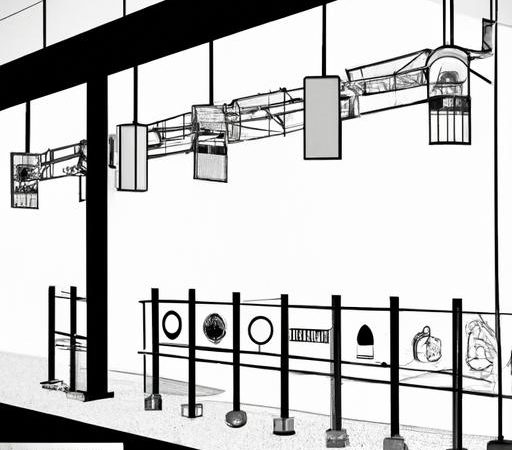How to Plan the Perfect Travel Budget: Balancing Savings and Enjoyment


– What are some tips for finding budget-friendly accommodation while traveling?
How to Plan the Perfect Travel Budget: Balancing Savings and Enjoyment
Planning a trip can be both exciting and overwhelming, especially when it comes to budgeting. It’s important to find a balance between saving money and enjoying your travel experiences to the fullest. In this guide, we will provide you with valuable tips and strategies on how to plan the perfect travel budget.
Benefits of Planning a Travel Budget
Creating a travel budget has numerous benefits, including:
- Helps you avoid overspending and stay within your financial limits
- Gives you a clear idea of how much money you need for your trip
- Allows you to prioritize your spending on what matters most to you
- Reduces stress and uncertainty during your travels
Practical Tips for Planning Your Travel Budget
Follow these tips to plan a travel budget that works for you:
- Start by determining your total budget for the trip, including transportation, accommodation, food, activities, and souvenirs.
- Research the costs of each component of your trip and allocate funds accordingly.
- Use budgeting tools or apps to track your expenses and adjust your budget as needed.
- Consider using rewards points or travel credit cards to save money on flights and accommodations.
- Be flexible with your travel dates and destinations to find the best deals.
Case Study: How Sarah Planned Her Budget-Friendly Trip to Europe
Sarah wanted to travel to Europe but was worried about the costs. Here’s how she planned her budget-friendly trip:
| Expense | Cost |
|---|---|
| Flight | $600 (used rewards points) |
| Accommodation | $50 per night (hostels) |
| Food | $20 per day (street food) |
| Activities | $100 (including tours and museum tickets) |
| Souvenirs | $50 |
| Total | $920 |
First-Hand Experience: Top Tips from Experienced Travelers
We asked seasoned travelers for their top budgeting tips, and here’s what they had to say:
- “Always research prices in advance to avoid unexpected expenses.” – John
- “Pack light to save money on baggage fees and transportation costs.” – Emily
- “Consider staying in a local homestay for a more authentic and affordable experience.” – Alex
Conclusion
Planning the perfect travel budget is all about finding a balance between saving money and enjoying your trip. By following the tips and strategies outlined in this guide, you can create a budget that allows you to make the most of your travel experiences without breaking the bank. Remember to stay flexible, research your options, and prioritize your spending based on what matters most to you. Happy travels!
When it comes to planning your dream vacation, having a well-thought-out budget is essential. Balancing savings and enjoyment can be a tricky task, but with proper planning and some insider tips, you can create the perfect travel budget that will allow you to make the most out of your trip while staying within your financial means. In this article, we will explore some practical tips and strategies to help you plan the perfect travel budget.
1. Determine Your Overall Budget
The first step to planning a perfect travel budget is to determine how much money you are willing to spend on your trip. This will help you set realistic expectations and narrow down your options. Consider your income, expenses, and any outstanding debts to determine the maximum amount you can allocate for your travel expenses. Don’t forget to factor in the cost of your transportation, accommodation, food, and activities.
2. Research Your Destination
Next, research your destination thoroughly to get a good understanding of its cost of living. Some destinations may be more expensive than others, and it’s essential to have a realistic understanding of what to expect. Look for information on the local currency, exchange rates, and prices for common expenses like food, transportation, and activities.
3. Set Your Priorities
Before you start allocating your budget, consider what you value the most during your trip. Are you more interested in experiencing luxury accommodations or indulging in local cuisine? Are you willing to splurge on exciting activities or prefer to save money and explore on a budget? Setting clear priorities will help you make informed decisions when allocating your budget.
4. Allocate Your Budget
Once you have a good understanding of your overall budget, research your estimated expenses for each aspect of your trip. Use budgeting tools, apps, or spreadsheets to create detailed expense breakdowns. This will help you identify areas where you can save money and allocate your budget accordingly.
5. Be Flexible with Your Travel Dates
The cost of travel can vary significantly depending on the time of year you choose to go. Consider traveling during the off-season or shoulder season to take advantage of lower prices for transportation, accommodation, and activities. Additionally, mid-week flights are generally cheaper than weekend flights, so plan accordingly to save on airfare.
6. Look for Deals and Discounts
Keep an eye out for deals and discounts on flights, accommodations, and activities. Sign up for newsletters, follow social media pages of airlines and hotels, and check travel blogs for promo codes and discounts. You can also use websites like Skyscanner and Kayak that compare prices from different airlines and hotels to help you find the best deals.
7. Budget for Unexpected Expenses
When planning your travel budget, it’s crucial to leave some room for unexpected expenses. Emergencies can happen, and it’s essential to have some extra cash set aside to cover them. Additionally, currencies can fluctuate, and prices can change, so having a buffer in your budget can help you stay prepared for any unforeseen circumstances.
8. Consider Alternative Accommodation
Accommodations can be one of the most significant travel expenses, so finding alternative options can help you save big. Consider staying in a hostel, Airbnb, or renting a vacation home instead of a traditional hotel. These options can often be more affordable and provide a unique experience.
9. Eat Like a Local
Food is another significant travel expense, and eating like a local can help you save money and immerse yourself in the culture of your destination. Skip pricey restaurants and opt for street food or local markets to try new and authentic dishes at a fraction of the cost.
10. Prioritize Free and Affordable Activities
While it’s tempting to splurge on all the popular tourist activities, there are often many amazing free and affordable things to do in a destination. Look for hiking trails, public parks, and free walking tours to explore the area and learn about its history and culture without breaking the bank.
In conclusion, planning the perfect travel budget requires careful consideration and balancing savings and enjoyment. By following these practical tips and strategies, you can create a budget that will allow you to make the most out of your trip without breaking the bank. Remember to be flexible, look for deals and discounts, and prioritize your expenses based on your travel priorities. Happy budget planning and safe travels!






